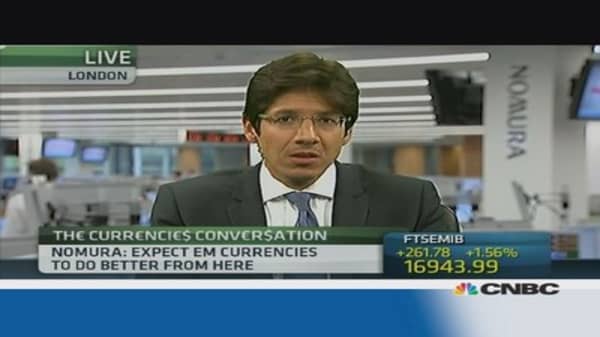Emerging markets in Asia appear to have stabilized in recent days, but market watchers believe the sell-off is far from over, with one analyst warning that the rout may be just the beginning of a multi-year bear market in the region.
According to Paul Krake, founder of Hong Kong investment firm View from the Peak: Macro Strategies, the winding down of the Federal Reserve's monetary stimulus, widely expected to begin this month, would likely be accompanied by a dovish statement saying monetary policy will be kept easy for a long period.
"That leaves us with developed market central banks that are extremely dovish – Japan, the Fed, the ECB," which will continue to encourage investors to stay exposed to these markets at the expense of emerging markets (EMs), he said.
(Read more: Larry Summers the next big risk for emerging markets?)
This will exacerbate outflows from EMs, drag their currencies down further and force central banks to keep their monetary policy tight. "Currency weakness will mean they have to stay hawkish," he added.
The tight monetary policy in EMs, which could hamper growth, adds to concerns over their wide current account deficits and gives investors more reason to sell.
"That's a toxic mix for emerging markets over the medium to long term," he said, expecting the turmoil to last for three to five years.




